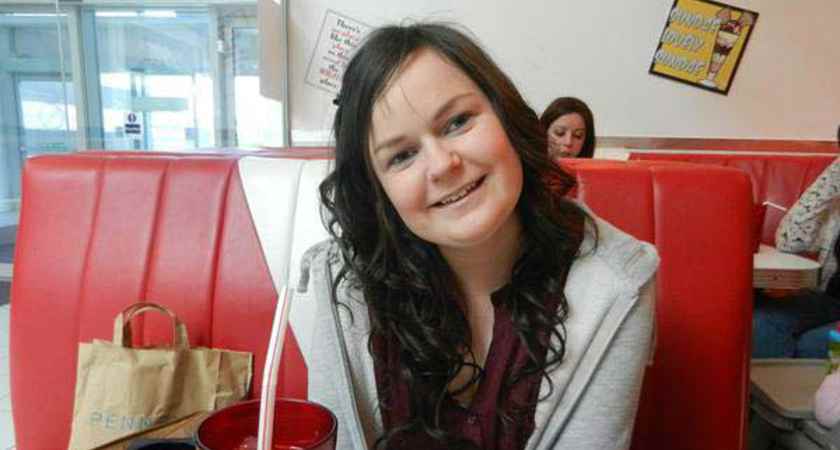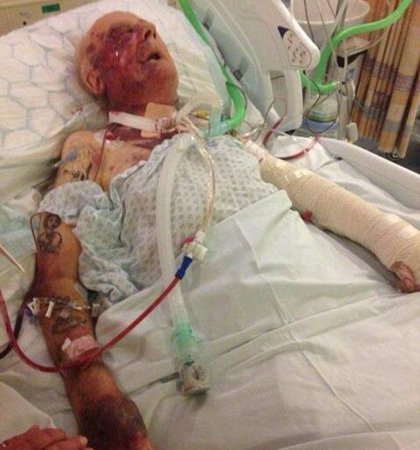Fiona Audley, Regional & Deputy Editor
FOR me the defining date of 2015 was May 22 — the day Ireland went to the polls and sent a resounding message to the State and the Catholic Church by voting in favour of legalising gay marriage.
The referendum on same-sex marriage was, understandably, a hot topic in Ireland and Britain in the lead up to that all important date.
But as it crept ever closer the world at large began looking on, debating the topic in question and casting their bets on which way Ireland would fall.
For most of us, our hopes and prayers were for a Yes vote, particularly with the eyes of the world on the outcome.
And thankfully the people of Ireland did not disappoint — proving that the country has moved far beyond the patriarchal mindset of its ancestors with their historic result.
Over one million Irish people — some who travelled home specifically from new lives in Britain, the US and other countries to take part — voted ‘Yes’ in the referendum.
They are responsible for heralding a new dawn in their country, one that will hopefully pave the way for other outdated laws and practices, which restrict the rights of its citizens, to be similarly kicked into touch.
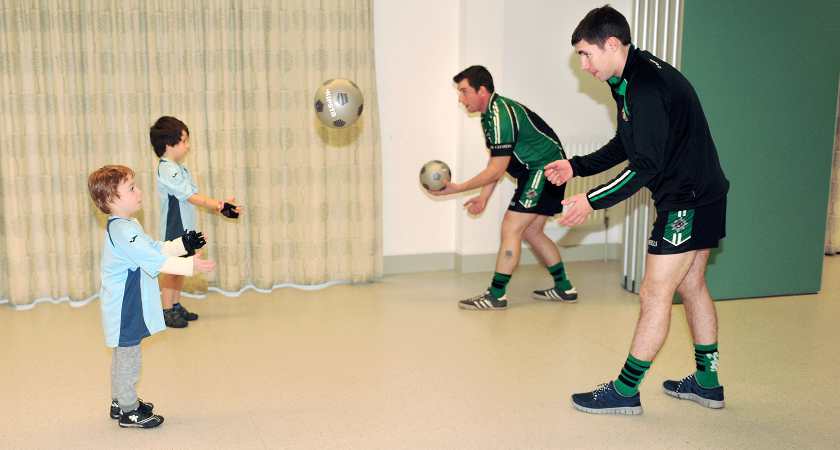 The Irish Guard, pictured here showing some underage GAA players the ropes, will compete in a London GAA's junior division 2016 Picture: Malcolm McNally
The Irish Guard, pictured here showing some underage GAA players the ropes, will compete in a London GAA's junior division 2016 Picture: Malcolm McNallyJamie Casey, Sports Editor
LONDON GAA broke new ground this year by becoming the first official County Board to welcome a Gaelic football team of British soldiers into the Association.
Although the PSNI and Metropolitan Police had already taken advantage of the abolishment of the GAA’s Rule 21 — which prohibited security forces from participating in official games up until 2001 — the prospect of a team of British soldiers taking to a GAA field still struck a nerve or two in both Ireland and Britain.
That prospect became a reality on September 14, when former London GAA Chairperson Noel O’Sullivan used a casting vote to approve a case for the Irish Guards, a regiment of the British Army, to compete in their Junior division in 2016.
The casting vote came after the room was deadlocked at 15 votes apiece and The Irish Post were first to reveal the historic decision online, with most Irish national newspapers picking up the story thereafter.
James Mulhall, Reporter
LOOKING back on 2015, the story that has stayed most in my mind is the murder of Karen Buckley on April 12.
Karen was the same age as me and she moved to Scotland not long after I moved to England so her horrific death struck a chord.
We covered it extensively since the news broke last April and it was heart-breaking to do so. Karen was ambitious and wanted to be an occupational therapist.
She should be at home with her family on her Christmas break from university now but instead, they’ll be visiting her grave. It’s devastatingly sad.
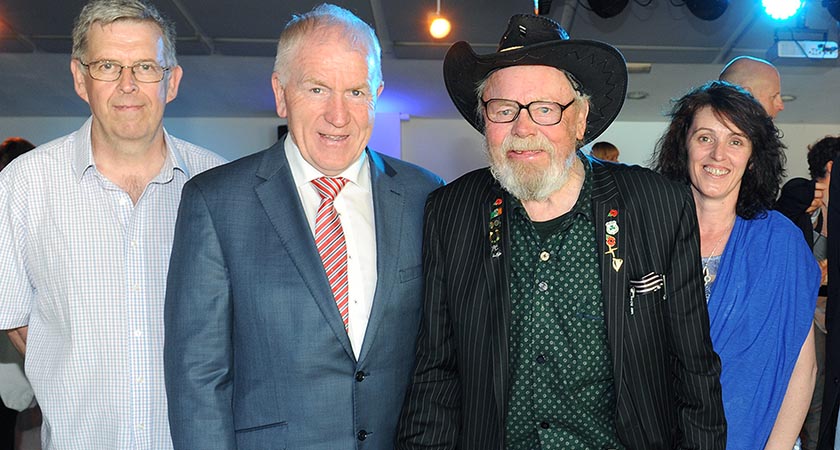 Danny Maher from Cricklewood Homeless Concern, Irish Minister for Diaspora Affairs Jimmy Deenihan TD, the late Denis Guiney and Charlotte Curran from Irish in Britain.
Danny Maher from Cricklewood Homeless Concern, Irish Minister for Diaspora Affairs Jimmy Deenihan TD, the late Denis Guiney and Charlotte Curran from Irish in Britain.Chris Egan, Midlands photographer
FROM popes, presidents and pop stars, The Irish Post covers them all, but the story that captured my imagination this year is one every Irish Post reader has — the story of why they left Ireland.
Each have a tale to tell whether it be starting out or starting over, a new job, a new love or leaving the care system. Each story is unique, yet we can connect to them all.
Earlier this month we heard of the North London community that rallied round to cover the funeral costs of much loved Irishman Denis Guiney and fulfilled his wish to be brought back to Ireland to be buried. A ‘forgotten’ Irishman tale.
Earlier this year The Irish Post covered the story of Seamus ‘James’ O’ Connor who grew up in Dublin, was in and out of the youth penal system and had his own battles with alcoholism which led to family break-up.
A tragic story in many respects, but what makes it my story of the year, is Seamus’ pride in where he was from, his memories of Dublin, of the handball court, McGee’s Court which formed part of the Mount Pleasant tenements and the areas link with Hollywood actress Constance Smith who briefly lived in the same area.
Popes, presidents and pop stars yes, but it’s the people and their stories that have stood out for me when it comes to a review of 2015.
Nemesha Balasundaram, Reporter
THE tragic tale of Irish pensioner Tommy Ward, who was assaulted in his home in South Yorkshire, was one of the most striking stories of 2015.
The horrific attack in October, which left the former soldier with a broken jaw, fractured skull, broken ribs and without his £30,000 life savings, quickly became a story that garnered national attention.
It raised concern for the safety of elderly residents living alone, and sparked anger amongst the close-knit community in Maltby in which Mr Ward lived for 31 years.
Whilst the 81-year-old continues his long journey to recovery, people across Britain and Ireland who were touched by Mr Ward’s plight rallied together to raise over £33,000 for him.
The widespread outpouring of support showed that despite this being a devastating incident for one family, they were not alone.
Siobhán Breatnach, Editor-in-Chief
DESPITE its inevitability, death can often strike when least expected and in the most harrowing of ways — and no more so when it signals the loss of young life.
In June, the lives of six Irish university students were cut tragically short and seven others were seriously injured when a balcony collapsed during a 21st birthday party in Berkeley, California.
All aged between 20-22, theirs should have been a summer of adventure and promise, but it was one that turned to utter tragedy.
When news of their deaths broke, Irish people around the world were quick to respond with compassion, offering much-needed solidarity in a time of great darkness.
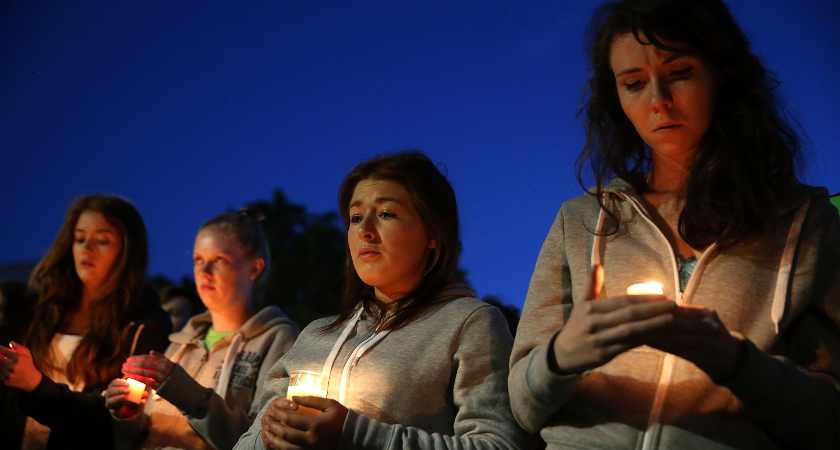 A vigil for those killed and injured in the Berkeley balcony collapse in June. Picture: Getty Images
A vigil for those killed and injured in the Berkeley balcony collapse in June. Picture: Getty ImagesThose in the US rushed to help the injured and comfort bereaved families, while funds poured in from around the world to help cover medical and funeral costs.
These past 12 months carry the unenviable record of being the year that saw the highest number of deaths of Irish citizens abroad in the last half decade.
Between May and August, 100 holidaymakers were reported dead around the world – 34 more than in 2014.
No country — from Britain to Australia and the Middle East — was left unscathed in a year that saw too many families picking up the phone to answer the call no one wants to receive — news that a loved one has perished.
Ar Dheis Dé go raibh a hanamacha.

